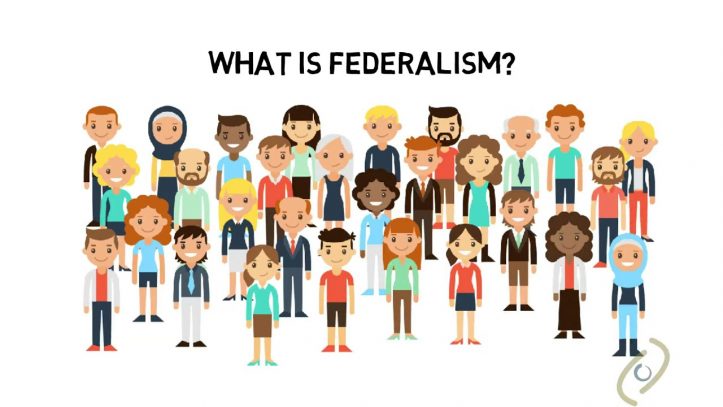What is Federalism? Federalism refers to a complex hybrid of constitutional ideals and practices related to the governance of American government. It is the source of the separation of powers principle inherent in our Constitution. This article briefly goes into the background and theoretical framework of federalism.
Federalism is a combination or balanced approach to government, where central authorities enjoy considerable operational power and control over diverse and numerous levels of state-autonomous government. Its distinguishing feature, first expressed in the Constitution of the United States, is an agreement of equality between the national level of authority and the various regional government bodies at different levels in the country. In this way, all branches of state government share a common power and jurisdiction over their respective functions, powers, and structure. The Constitution vests the supreme power in a national government, while the local level likewise is sovereign over its own affairs. Federalism thus works in tandem with the other major philosophical perspectives on government, including socio-criticism, liberalism, and social theory.

On the most fundamental level, federalism aims at establishing a unitary constitutional system with nationally-respectable institutions for the nation as a whole. It is also recognized to be compatible with limited federalism. Limited federalism restricts the power of the national government to act on matters not deemed to have a direct connection with the national interest by excluding matters from the realm of provincial authority. On the other hand, the Constitutional argument against a purely federalist system upholds the existence of several provinces which could exist independently as well as alongside the national interest. The major premise supporting the notion that provinces enjoy exclusive constitutional rights rests on the assumption that there is no pre-eminence of national interest over the provinces.
In terms of political theory, federalism has been regarded as a form of multipart government. It has been distinguished by the fact that it separates the powers of the national government into two distinct but co-existing entities namely, the national government and the provinces. In this arrangement, the national government assumes direct control over some matters while respecting the autonomy of the provinces. The system, however, may have some shortcomings. Since the powers assumed by the provinces are not necessarily balanced with the central government, there are chances that the provinces might exceed their capacity to disburse powers and become an object of political disturbance.
Moreover, federalism does not appear to provide a complete solution to the problem of financing the federal budget. There is considerable disagreement as to how much control the states should have over the financing of the federal government. The states are commonly hostile to the idea of giving up their power over the funding of the federal government. Moreover, some federalists insist that the system promoted by the framers of the Constitution can be likened to a constitutional republic in which the constitution governs while state governments retain significant autonomy. Advocates of federalism counter that the federal structure can easily succumb to provincial encroachments since a central government is generally weak and unable to protect the interests of its citizenry. They argue that a federal government with numerous decentralized institutions can easily succumb to pressures exerted by the various provincial organs since each of them would be keen to gain control over important aspects of policy.
Federalism, unlike constitutional monarchies, does not allow the constitution to be changed by the people through a constitutional amendment process. Federalism was first introduced in Scotland in 17 SJc after the end of the Union. The principle behind federal systems is the separation of powers between the center and the various provinces or states. The federal system provides checks and balances against the abuse of power by the center. Federalism also gives a larger degree of accountability to the center than the other forms of polity. Although most federalist societies share a common culture, language and other aspects of society, there are significant differences in respect to their political systems and cultures.
The aim of federalism is to avoid the powerful centralizing and redistributive tendencies of constitutional monarchies. The nationalities who are associated with the concept of federalism are France, Germany, Italy, the Netherlands, Spain, and the UK. Federalism differs from constitutional monarchies in that the principle of direct democracy is not present in the constitution. Federalists believe in the notion of “federalism equals multiparty democracy”. However, this is not how it usually comes to pass since most federalist states are ruled by one party only. In addition, the concentration of power in the center is sometimes blamed for the lack of equality and freedom of citizens.
Federalism was adopted by most European Union states early on; however, a few independent European governments tried to implement federalism in their states, only to be stopped by the centralized governments. The main argument against federalism during the early days was the lack of a constitution and the ability of a central government to dictate what the constitution says. This was true during the time of the Roman Empire, but the Venetian and Greek empires did away with the idea, because they were not worried about maintaining a strong central government. The main arguments against federalism at the time were the privileges and powers that centralized governments give to the different levels of government. The federalists believed that the federal structure encourages competition, because smaller states are likely to be absorbed by larger ones, and that federalism promotes separation of powers.